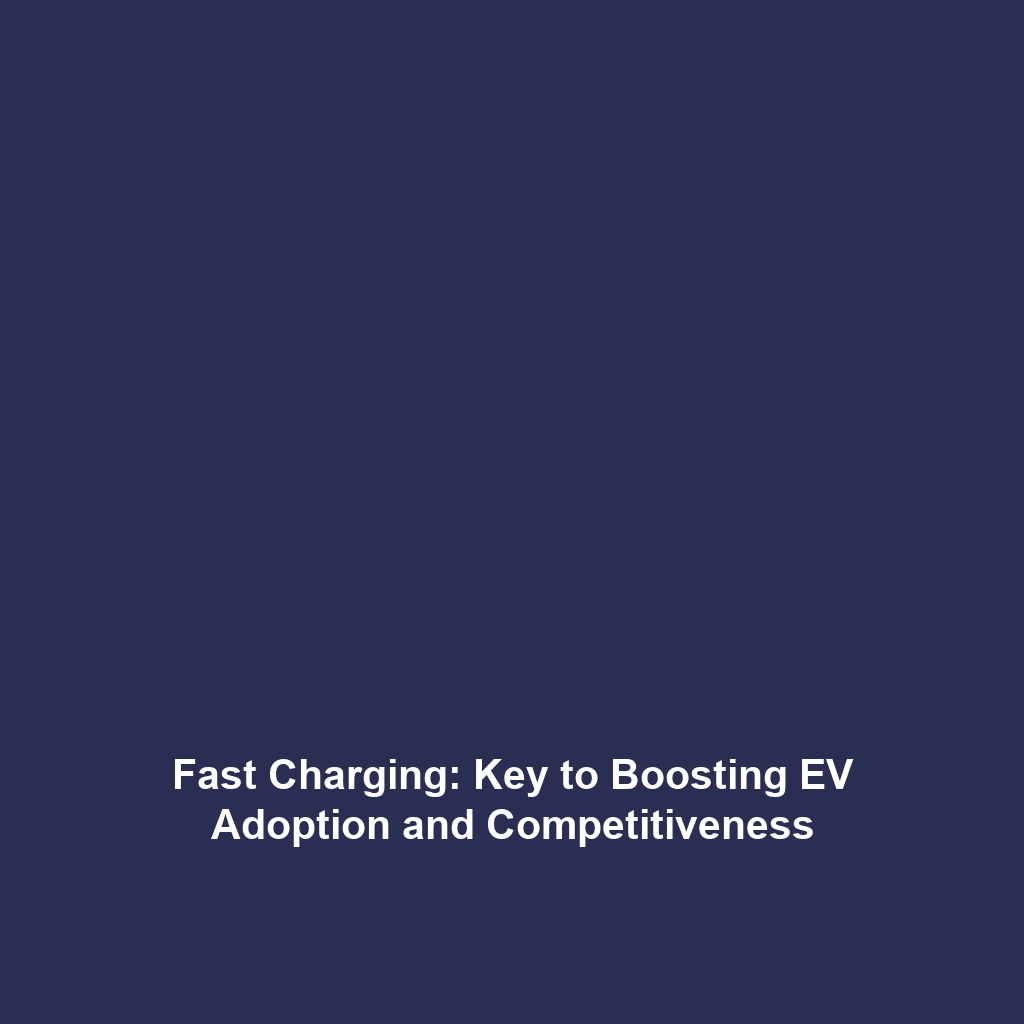Fast Charging Technologies are Crucial for EV Adoption
Introduction
In the race towards sustainable transportation, fast charging technologies play an essential role in the broader context of battery technology. As the demand for electric vehicles (EVs) surges, the ability to reduce charging times becomes paramount. This critical advancement not only facilitates convenience for users but also significantly enhances the competitiveness of EVs against traditional gasoline vehicles. By implementing innovative charging solutions, the industry can alleviate range anxiety and foster wider acceptance of electric mobility.
Key Concepts of Fast Charging Technologies
Understanding the principles of fast charging technologies is vital for grasping their impact on battery technology. Some of the key concepts include:
- High-Current Charging: Utilizing higher current levels allows for quicker energy transfer to the battery.
- Battery Chemistry Advancements: Innovations in lithium-ion and solid-state batteries contribute to improved charging efficiencies.
- Smart Charging Infrastructure: The integration of IoT allows for real-time management of charging stations, enhancing user experience and grid stability.
Applications and Real-World Uses
Fast charging technologies are pivotal in various applications within battery technology. Examples include:
- Public Charging Stations: Designed for quick stops, enabling EV owners to recharge during errands.
- Fleet Charging Solutions: Used by commercial fleets to minimize downtime and maintain operational efficiency.
- Home Fast Chargers: Encourage EV ownership by offering faster at-home charging options.
Current Challenges
Despite their advantages, fast charging technologies face several challenges within battery technology:
- Longevity of batteries may be impacted by rapid charging cycles.
- Cost of installing advanced charging infrastructure remains a concern.
- Standardization across charging platforms can limit interoperability.
Future Research and Innovations
Ongoing research is poised to revolutionize fast charging technologies. Potential breakthroughs include:
- Next-Generation Battery Materials: Research into graphene and silicon-based anodes could yield significant improvements in charging times.
- Wireless Charging Systems: Innovations could enable charging without physical connections, enhancing convenience.
- Dynamic Charging Technologies: Conceptual systems that charge vehicles while driving hold promise for reducing the need for stationary charging.
Conclusion
In conclusion, fast charging technologies are indispensable in driving the adoption of electric vehicles, making them competitive with traditional gasoline vehicles. As the field of battery technology evolves, innovative solutions will address current challenges, paving the way for a sustainable future. Exploring further advancements in this area is encouraged for individuals and stakeholders alike. For more information on related topics, visit our articles on Battery Technologies and Electric Vehicle Innovation.
